11 February 2025
To celebrate the International Day of Women and Girls in STEM this year, we highlight the experiences of women who balance careers in STEM with motherhood. Balancing both can be especially challenging for women in STEM, as they often face additional expectations around caregiving, career interruptions and systemic barriers within the industry that can impact progression. We have gathered insights from mums at the Malaghan Institute.

Professor Kjesten Wiig, Director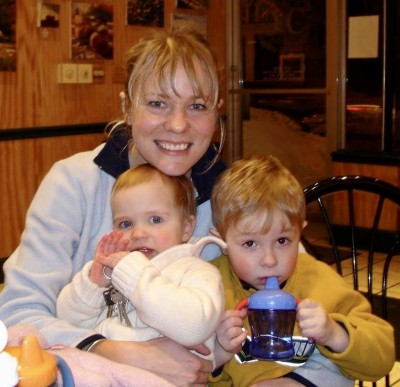
What has been the most challenging part of balancing your roles as a scientist and a mother?
I had two children at 33 and 34 when I had only relatively recently stepped into management level positions. I took both responsibilities really seriously, with my children being the most important. I was also a single mother, living on the opposite side of the world to my family.
Looking back to when the kids were little, I am not altogether sure how I did it, other than being really organised and getting up at 4am every day! But I wanted both things – I wanted to be a really good mum and I was always super excited about my work, so the motivation and drive for both came easily to me. It meant I had to be flexible, both for the children and for work, often working at odd times, just so I didn’t let anyone down or leave things undone. I was lucky to have employers who valued me and let me be flexible so I could achieve both being a good mum and succeeding in my career.
Kylie Price, Chief Technology Officer 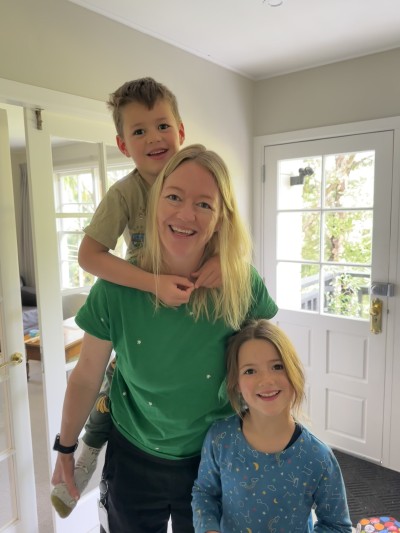
How has motherhood changed your perspective on your work in STEM?
Becoming a mum has deepened my empathy and strengthened my drive to make a difference. After having children, I feel my heart opened so much more and now I feel more deeply the fact that every patient we work with is someone’s child, and that thought inspires me to push harder for breakthroughs in health and disease. Motherhood has given my work even greater meaning.
What misconceptions do people have about being a mother in STEM?
I lecture students at the university and once I overheard a group of girls asking whether they were going to be mums or career scientists. This is a common misconception in my opinion, that you can’t be a dedicated mum and have a meaningful career in STEM. It’s not true! While it’s a juggle, with good support and organisation, it’s absolutely possible to thrive in both areas. STEM careers can also offer flexibility – you’ll work hard, but often you can adapt your schedule to suit your family.
What kind of support have you found to be most helpful?
Without a doubt my family is my greatest support system. My husband is incredibly hands-on and encouraging of my career, but my secret-sauce is my dad who lives in a tiny house on our property, he is always there to help. My mum also steps in when I travel internationally for conferences, I send one of my children down to her and this helps alleviate the load and gives her amazing quality time with them. It truly takes a village, and I’m so grateful for mine.
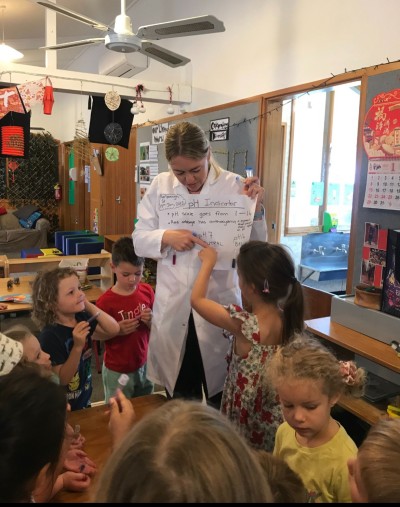
Have you made a career sacrifice for motherhood?
I’ve turned down many international speaking opportunities, which might have opened new doors, but I’ve found ways to make the most the time I do have even while on maternity leave. For instance, during both maternity leaves, I volunteered in leadership roles with international societies in my field. I even attended many early-morning virtual meetings while feeding my babies! Balancing motherhood and STEM is about being strategic and adaptable.
Any sacrifice I have made, I have made happily to be the kind of mum I want to be, a fun, engaged and present mum, who models the value of family time and hard work and who is very happy with the balance I have found.
What do you love about being a mum and being in STEM?
I often hear parents complain about their children’s incessant questioning, always asking them ‘why this?’ or ‘why that?’. This was a trait I dearly hoped my children would have, I waited with bated breath for the day my children started to ask me why?! Curiosity is at the heart of both science and childhood, and I love sharing my passion for discovery with my kids. When they ask ‘why’ or ‘how’, I encourage them to think critically—how can we design an experiment to figure that out? I ask them what we will measure (variables) and how can we be sure the change we see, is from the thing we did and not something else (controls)!!! Teaching them how to research and evaluate answers is a joy. I asked my daughter this morning what her favourite part of having a scientist for a mum is and she said “the experiments!” Sharing science with my kids, their friends, and their classmates fills me with excitement, just watching the world reveal itself to them! Science is cool!!
Dr Brigitta Mester, Process Development and R&D Manager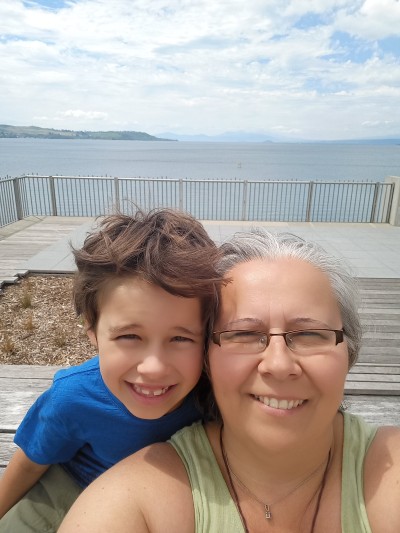
What has been the most challenging part of balancing both roles?
Being a scientist, especially in life sciences is not a ’9–5’ job. Neither is motherhood. Both requires the utmost dedication to fulfil their potential. Therefore, doing both seems impossible. However, with supportive employers, colleagues and family it can be done. The first few years will be a big challenge, whilst a child is very dependent on their mother, as even in this day and age, more often than not, women will automatically be the main caregivers in the family unit.
What policies or workplace changes would make the biggest difference for mothers in STEM?
STEM employers who understand the need for supporting mothers in the field will be rewarded with well-educated, experienced, dedicated employees, who are masters of solving problems and multi-tasking. Flexible working hours and working location, additional leave (especially sick leave), on-site free or subsidised daycare, upskilling courses for mothers returning to science are all things employees could offer to help mothers remain and progress in the field of science.
Unfortunately, I have seen way too many talented women giving up a career in science after failing to find jobs that can fit around family life. I often wonder, if they felt any regret once their children grew more independent, only to realise that by then it was too late to re-enter the scientific workforce, as it is not a field that could easily be picked back up again after years away.
Divya Ramanan, QA Team Lead (BioOra)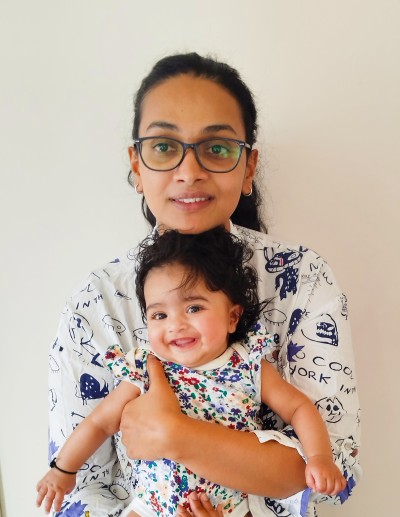
How has motherhood changed your perspective on your work in STEM?
Motherhood has changed me in ways I never expected – making me more efficient, focused and even more determined. Every day, I’m learning how to balance my work with the needs of my little girl. More than anything, I want to show her that she can dream big, work hard and still be there for the people she loves.
The work we do at Malaghan and BioOra isn’t just a job for me – it’s deeply personal. Knowing that our research is saving lives makes every challenge worth it.
What misconceptions do people have about being a mother in STEM?
There’s this idea that once you become a mum, your career has to take a step back, or that taking on a demanding role means sacrificing time with your family. I won’t lie – coming back to work after maternity leave wasn’t easy, but I returned with a promotion and even more responsibilities. That moment reminded me that being a science professional and being a mum don’t have to compete – they can complement each other. Yes, the workload is high, and some days feel overwhelming, but motherhood has made me a better multi-tasker, a sharper thinker and more intentional with my time. I’ve learned to give my best at work while making sure I’m fully present for my daughter when she needs me.
What do you love about being a mum and being in STEM?
No matter how tough a day at work gets, the moment I walk through the door and see my daughter’s little face light up with a smile, everything else melts away. The stress, the pressure, the deadlines – it all disappears in that instant. She reminds me why I do what I do, why I push forward, and why balancing both worlds is so important.
I want her to grow up knowing she never has to choose between ambition and family. Maybe one day, she’ll look back and feel proud that her mum was part of something truly meaningful – pushing the boundaries of science while also being there for her every step of the way.
Danielle Sword, PhD Student 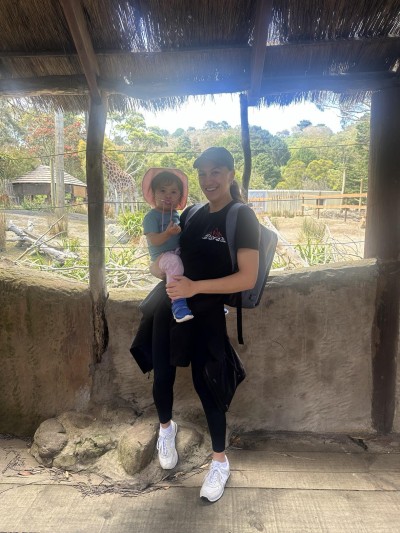
Can you describe your journey as a scientist and a mother? What has been the most challenging part of balancing both roles?
I have found it challenging but equally rewarding finding my path as a scientist and Māmā. The most challenging would be my own ‘mum guilt’, sometimes I have work to do (or experiments that have been delayed) and instead of picking my daughter up from kohanga and spending that quality time with her, I will be getting some much-needed work done.
I remember my first international conference overseas which was also my first time away from my daughter who was back home in New Zealand. That was hard waving her goodbye, but she is also my inspiration to make sure if I am ever away from her and for work, I am giving it all my best. I just want to make my daughter and my whānau proud.
What kind of support (from institutions, colleagues, or family) has been most helpful in balancing your career and motherhood?
It is only through the amazing support of my village including my partner, whānau, my supervisors and colleagues who help to make this all happen.
Evelyn Hyde, Senior Research Officer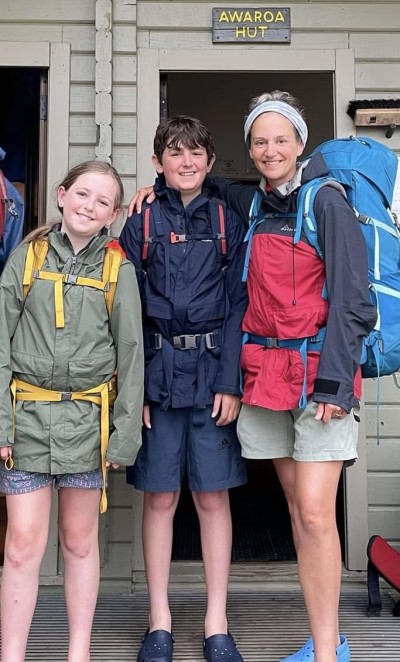
Can you describe your journey as a scientist and a mother? What has been the most challenging part of balancing both roles?
I have two children who are thirteen and eleven, and have worked at the Malaghan Institute through their arrival. I took parental leave for six months for each child, but other than that I have worked full time as a Research Officer. My daughter grew up thinking the large M on the building stood for “Mum”. I think it is challenging to work fulltime in any role when there are little people growing up that you want to be around, but having time apart in a career that you love definitely has its benefits. Getting used to that balance was certainly challenging and finding some time out for myself was also important, as both roles can definitely hard work! A challenge these days is dealing with all the “You’re a scientist mum, [insert tough question]?”.
What kind of support (from institutions, colleagues, or family) has been most helpful in balancing your career and motherhood?
Both science and kids require extra attention and time at short notice, so support within and outside the workplace is invaluable. I have colleagues who can step in and help at work when I am needed for the children, and I have amazing support from my husband (and neighbours and friends when needed) on long experimental days. If I have missed seeing the kids due to early starts or late finishes in the lab, I try and make it up at another time. Maybe I can duck out to see a school assembly or cross-country race. I try to listen to my gut, and if there is something with the kids that I really don’t want to miss, then I try and make it happen. With communication, planning/organisation and trying to minimise the mum-guilt/work-guilt feelings, a balance can be found! And (touch wood), things get easier as they get older!
Have you had to make career sacrifices or adjustments for motherhood?
I don’t think I have made career sacrifices. I wanted to be a mother and feel lucky to be able to be a mother and have a career in science. The balance between the two feels like it is in my hands. I can think about science while being a mum if I need to!
Professor Franca Ronchese, Programme Leader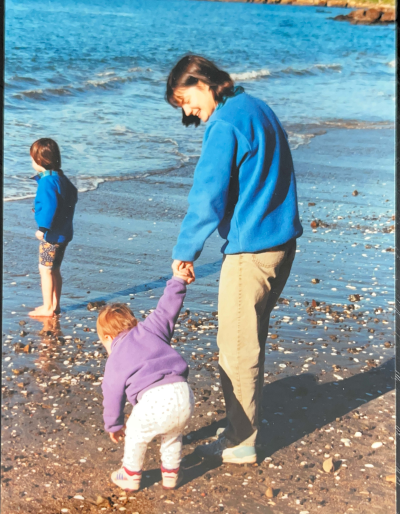
What has been the most challenging part of balancing your roles as a scientist and a mother?
I don’t know if it is possible to ‘balance’ being a scientist and a mother. I found I was always torn between two roles that could each absorb all my time, my daughters and my science, and I loved both. It meant always feeling like I wasn’t doing anything as well as I would have liked. I found it more helpful to think of my two roles not as a balance but as a compromise, always requiring some give and take. And all the help you can get!
